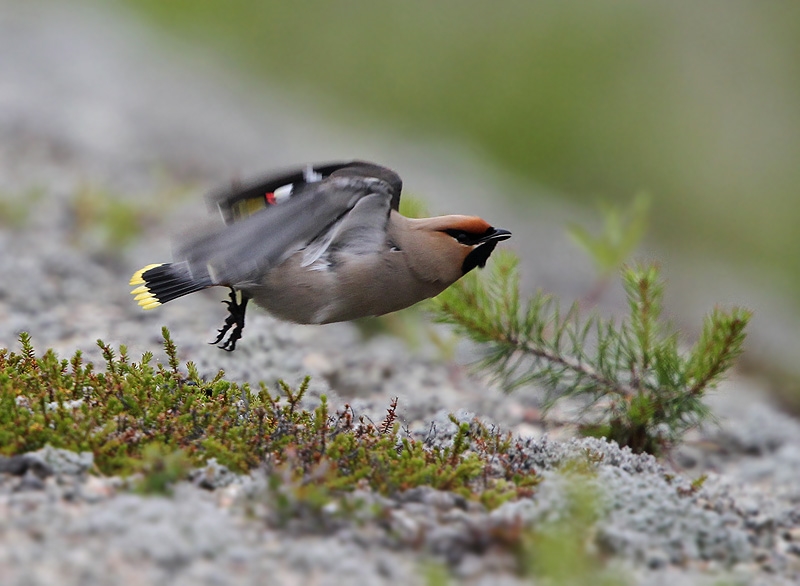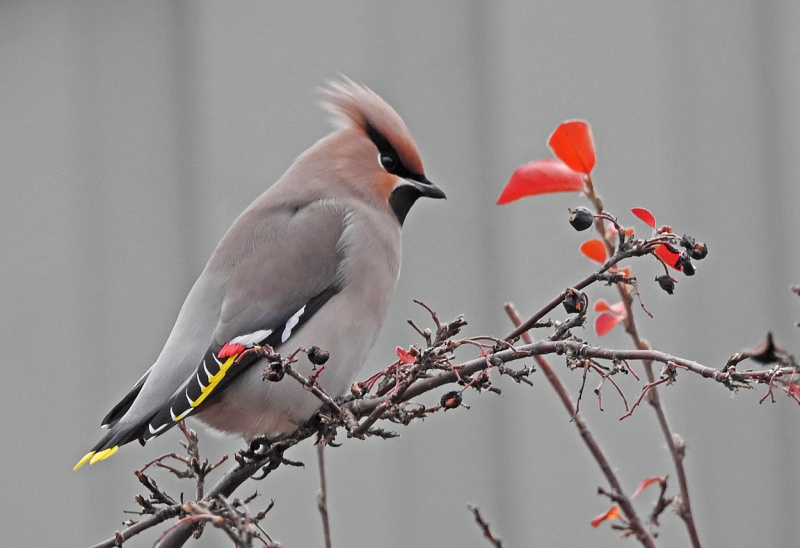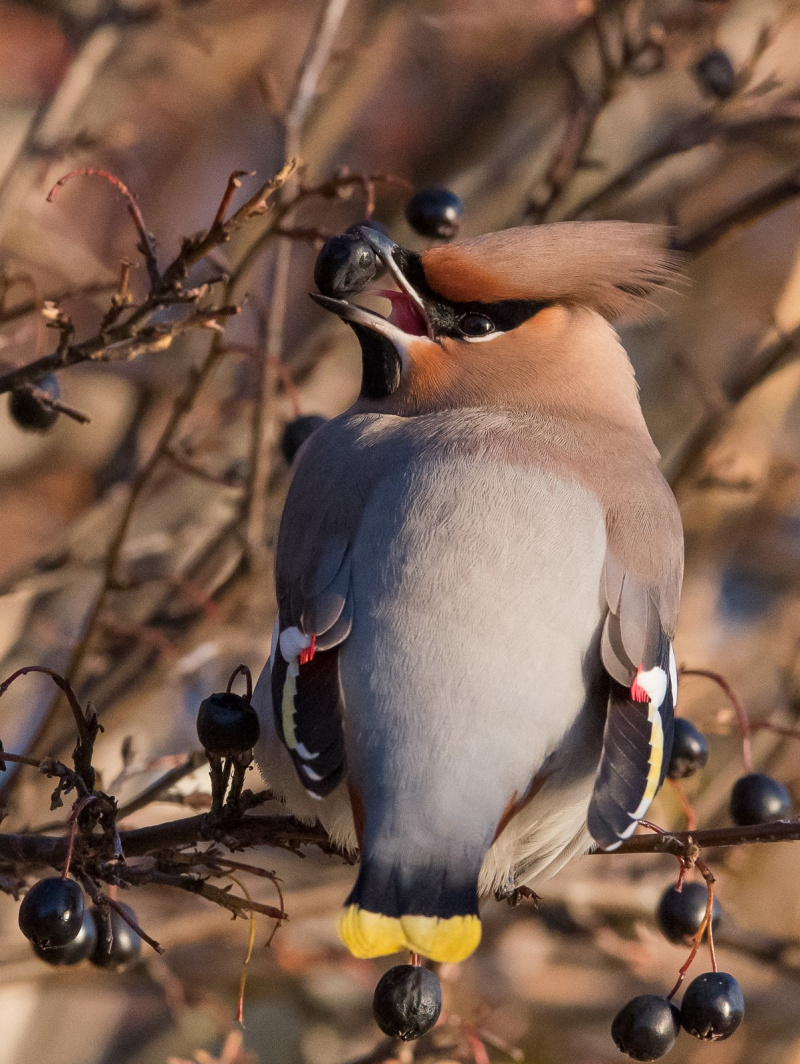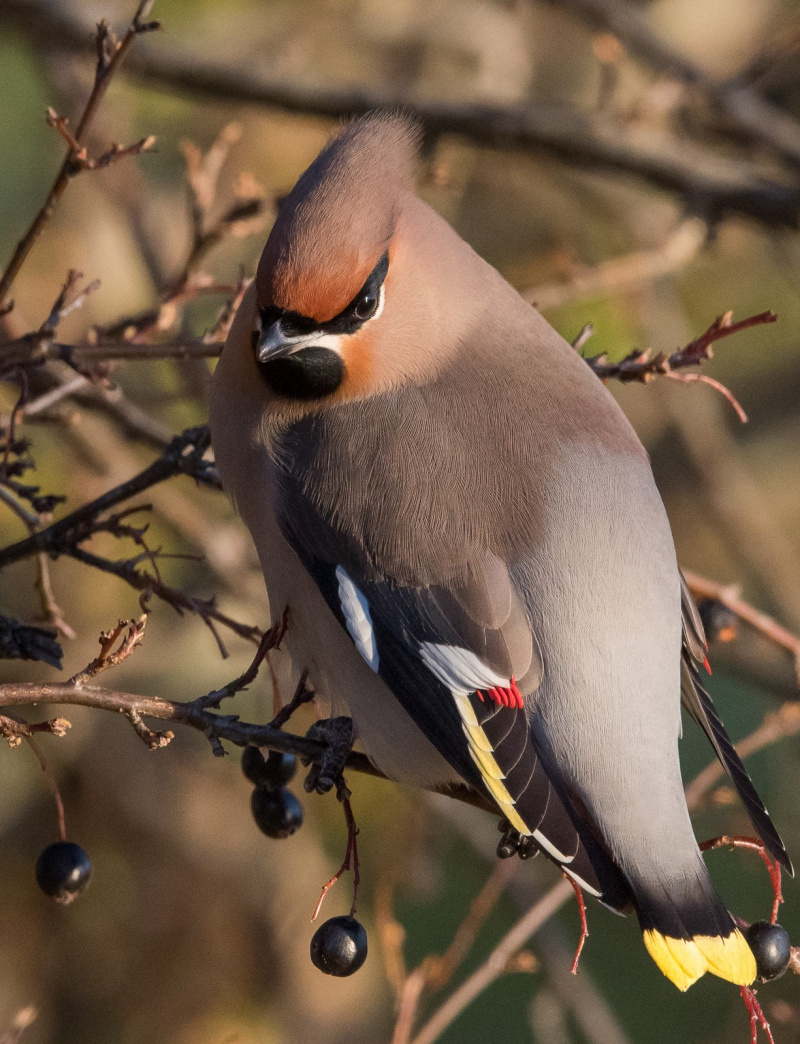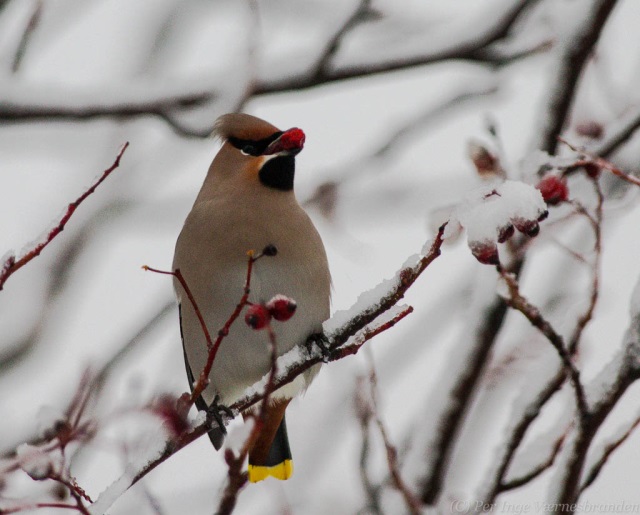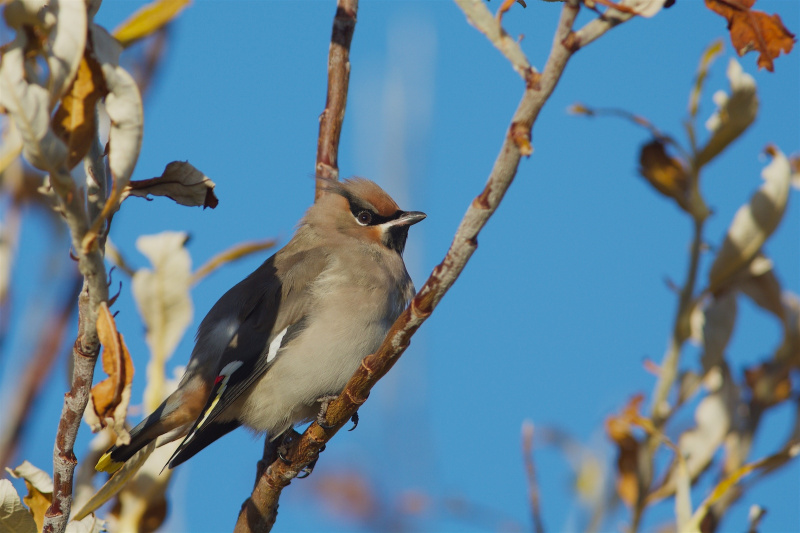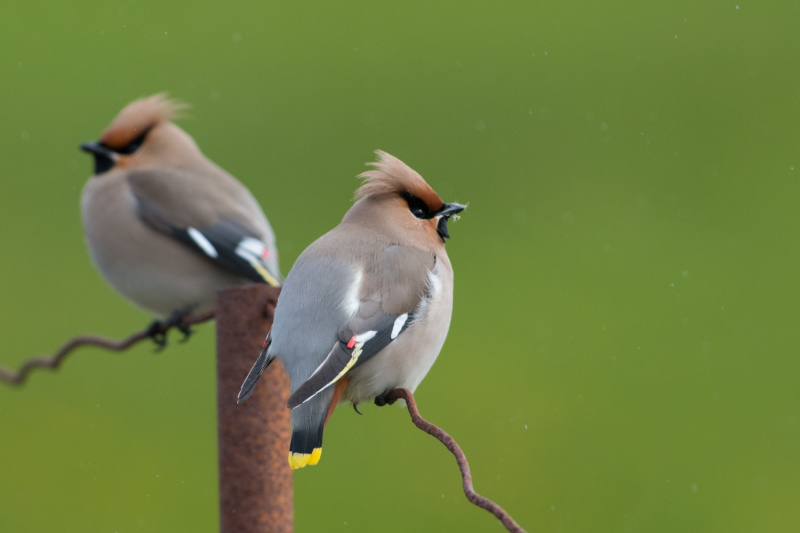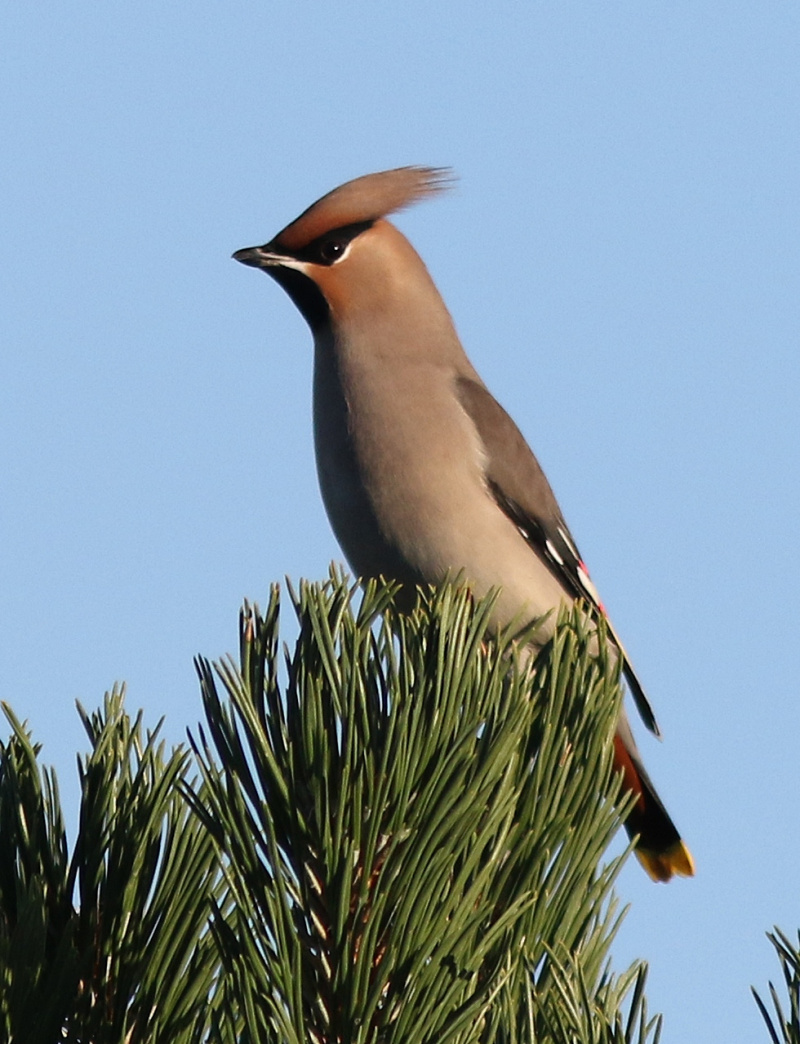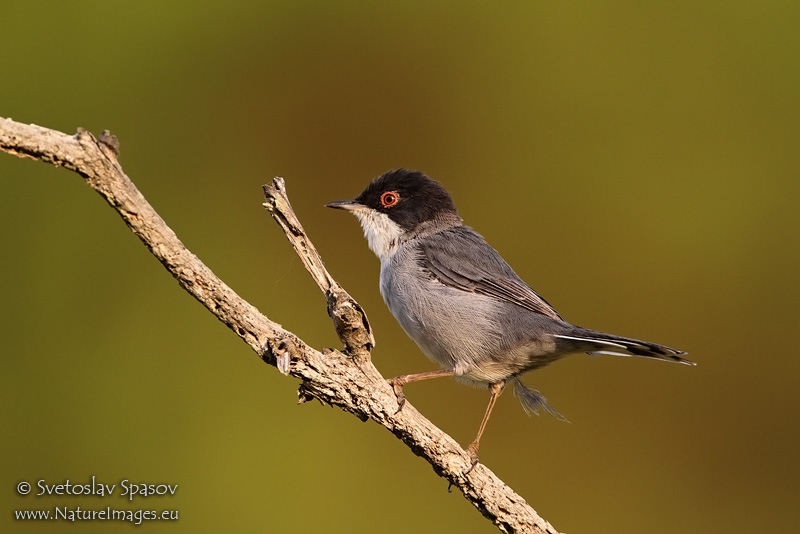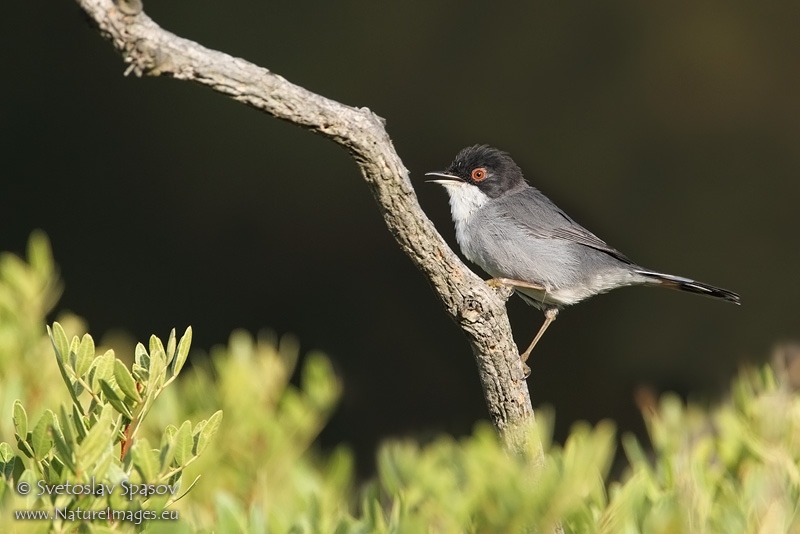Bohemian Waxwing (Bombycilla garrulus)
Sardinian Warbler (Curruca melanocephala)
A social, compact, buff bird with full crest, short neck, black bib, black mask and red wax-like extensions to secondaries. Tips of primaries and tail yellow. May be confused with starling when seen in silhouette or when flying, but note fuller head, rounder and more compact body and shorter bill. Flight includes frequent glides, even when changing directions. Not very shy in winter. Hunts insects in flycatcher-like manner in summer.
Sound:Contact call weak, but distinct and typically alert one to the presence of a flock. A thin, high pitched, ringing "tzrrrrrrr". Song more or less a variation on the contact call.
Contact call:
Distribution:
Wikipedia: map (se also Xeno-canto below)
Ecology:Birdlife ecology
Links:
Observation.org Latest observations
Image search Flickr NB! May give other species
CCSounds:Recorded by Rob van Bemmelenhttp://www.xeno-canto.org/CC license
Slender warbler with long tail, short wings and pointed bill. Restless and alert with frequently raised crown feathers and dark eye framed in red. Male with black head, white throat, greyish upperparts and off-white underparts. Female less striking, with grey head grey-brown upperparts, distinct buff flanks and paler belly. Both sexes with white sides and corners to tail. Rarely sits exposed, and usually betrays itself by it's frequently used scolding call. Often just glimpsed when it dives into a bush, spreading it's tail and showing the white markings.
Sound:Epitome of mediterranean sylvias, and learning the songs of the genus should start with extensive listening to this species (use xeno-canto link below). Scolding call a machinegun-like, short and harsh rattle. Usually consisting of 2-5 notes with some variation in timbre and delivery. Song a stream of varied, short notes, constantly interspersed with variations of the scolding call. Phrases 2-5 sec. long. Easily confused with several other sylvias, especially in the eastern part of the Mediterranean. Rattling sound (in both song and call) differs from most other congeners by being considerably harder and more "smacking". Dartford Warbler most similar, but usually betrays itself by it's characteristic and frequently used contact call (also interspersed when singing).
Song:
Distribution:
Xeno-canto: map
Ecology:Birdlife ecology
Links:
Observation.org Latest observations
Image search Flickr NB! May give other species
CC
 English
English Albanian
Albanian
 Armenian
Armenian
 Bulgarian
Bulgarian
 Catalan
Catalan
 Croatian
Croatian
 Czech
Czech
 Danish
Danish
 Dutch
Dutch
 Finnish
Finnish
 French
French
 Georgian
Georgian
 German
German
 Greek
Greek
 Hungarian
Hungarian
 Italian
Italian
 Latvian
Latvian
 Lithuanian
Lithuanian
 Macedonian
Macedonian
 Norwegian
Norwegian
 Polish
Polish
 Portuguese
Portuguese
 Romanian
Romanian
 Russian
Russian
 Sami : Lule sami
Sami : Lule sami
 Sami : North sami
Sami : North sami
 Sami : South sami
Sami : South sami
 Scientific names
Scientific names
 Serbian
Serbian
 Spanish
Spanish
 Swedish
Swedish
 Ukrainian
Ukrainian


